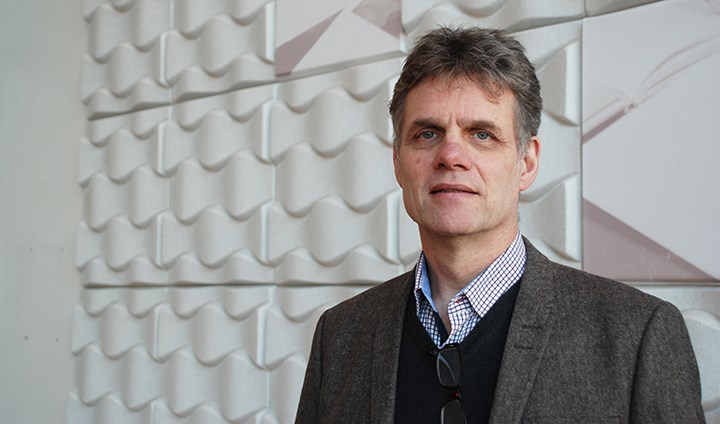Sören Andersson - new professor 2016

Sören Andersson is Professor of Medicine. A significant portion of his professional career has been focused on laboratory diagnosis, both in clinical procedures and in research and development.
1957 Born in Stora Skedvi, Sweden
1999 PhD in Medicine at Karolinska institutet. Thesis: HIV-1 and HIV-2 Infections in Guinea-Bissau, West Africa – Studies of Immune Responses, Prevailing Viruses and Epidemiological Trends
2006 Docent of Medical Science at Örebro University
2015 Professor of Medical Science at Örebro University
"I am interested in the immune response to infectious diseases. It is important to understand the protective mechanisms and cure, but also diagnostics, because it is often the immune response that is measured and is the basis for making laboratory diagnosis."
Accurate and reliable laboratory diagnosis is an important basis for both clinical work and research. In laboratory medicine in Region Örebro County, a number of national and international reference functions have been established, including those pertaining to the diagnosis of sexually transmitted infections and blood-borne infections.
"I contribute to the development of new methods and quality assurance of diagnostic strategies. This is done on behalf of the World Health Organization, with the overall aim of raising the quality of laboratory diagnostics in a global perspective."
"I see a need for exploring new avenues, like changed conditions with better patient throughput, reflex testing, prognostic and therapy guiding diagnostics, all of which place greater demands on methods and procedures, but also provide opportunities to shorten and adjust hospital stays and surgical procedures on an individual basis."
Cost trends for such work need to be optimised and developed. New methods and new combinations of methods, greater automation and flexibility (so-called 24/7 availability), and an individualised screening process with flexible panels of parameters, are all examples of areas with great developmental potential.
"In my international work I have focused on establishing simple, robust and reliable diagnostic strategies that work well even in areas with limited resources."
Studies on the immune response to infectious diseases is also relevant to vaccine development. Both in Sören Andersson's thesis as well as in recent studies, the preparation for field trials of HIV vaccines in Africa has been a primary focus area.
"Together with Professor Åke Strid at Örebro University, we have developed and created some exciting prototype vaccines against sexually transmitted infections."
After ingesting plant HIV proteins, mice have been shown to generate a strong immune response to such proteins. A vaccine against the STI chlamydia, in the form of nasal spray, has provided promising protection against the infection in mice, and is protected by patent in the USA and China.
"I have worked both nationally and internationally, holding positions and consulting assignments at the WHO, UNAIDS (the UN AIDS agency) and Sida, as well as the Swedish Institute for Communicable Disease Control (Smi), Karolinska Institutet and Örebro University Hospital. Over the last ten years I have held various management assignments at Smi and Örebro County Council (now Region Örebro County). Since 2010 and until my new position as professor, I have been director of the Department of Laboratory Medicine, Örebro University Hospital."
Translation: Jerry Gray
